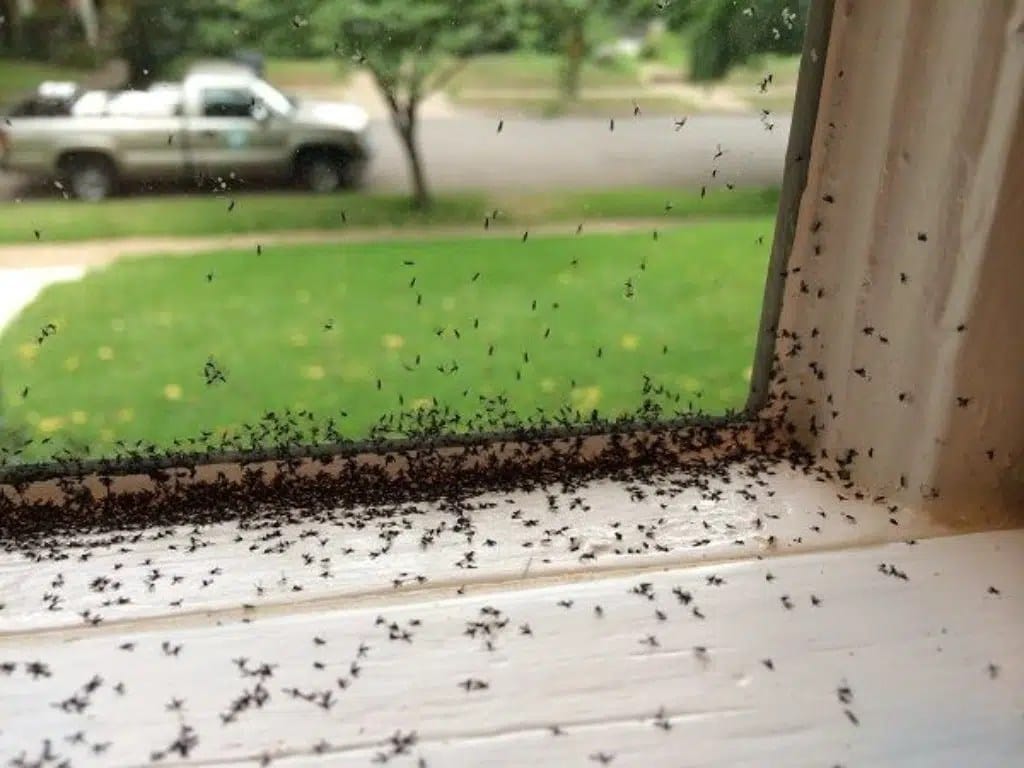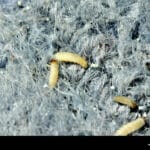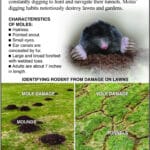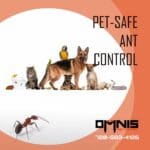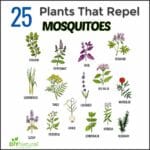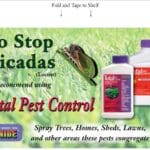Dealing with gnats in your home is frustrating, whether it’s fruit flies swarming your fruit bowl or fungus gnats plaguing your houseplants. This comprehensive guide provides a step-by-step approach to identifying the gnats, determining the source of the infestation, and implementing effective solutions for elimination and prevention. We’ll cover DIY methods and when professional help is advisable.
Conquer the Gnat Invasion: A Step-by-Step Plan
This guide helps you identify the specific gnats infesting your home, locate their breeding grounds, and implement effective eradication and prevention strategies.
Identify the Gnat Species
Correctly identifying the type of gnat is the first step to effective control. There are several common culprits, each with unique characteristics and habitats:
Fungus Gnats: These small, dark, slender gnats are typically found in damp soil, often in houseplants. They thrive in moist environments and feed on fungi and decaying matter. [https://www.lolaapp.com/]
Fruit Flies: Slightly larger than fungus gnats with reddish-brown eyes, fruit flies are attracted to fermenting and sugary substances like overripe fruit, spilled juice, and decaying vegetables. [https://www.lolaapp.com/]
Drain Flies: Small, dark, and fuzzy, drain flies breed in the organic matter buildup within drains, garbage disposals, and sewer pipes. [https://www.lolaapp.com/]
Visual identification is often sufficient, but if unsure, an online image search or a pest identification chart can be helpful.
| Gnat Type | Appearance | Habitat |
|---|---|---|
| Fungus Gnat | Tiny, dark, slender; resembles a mosquito | Damp potting soil, wet sponges, damp areas |
| Fruit Fly | Small, reddish-brown eyes; quick movement | Overripe fruit, sugary spills, damp garbage |
| Drain Fly | Small, dark, hairy body | Grimy drains, garbage disposals, sewer pipes |
Uncover the Gnat Hideout: Finding the Source
Once identified, locate the gnat’s breeding ground. This is crucial for long-term control.
Fungus Gnats: Over-watered houseplants are a prime breeding ground. Soggy soil and consistently moist environments are ideal for their larvae.
Fruit Flies: Look for rotting fruit, spilled sugary liquids, garbage cans, and even pet food bowls. They are attracted to decaying, sugary substances.
Drain Flies: These gnats breed in the organic matter and slime that accumulates in drains, garbage disposals, and sewer lines. Thorough drain cleaning is often necessary.
The concentration of gnats often reveals the source of the infestation.
Effective Eradication Tactics: A Multi-Pronged Approach
Several methods can be used, ranging from simple DIY solutions to professional intervention. A combination of approaches is often most effective.
1. Reduce Moisture:
Houseplants: Allow the soil to dry out completely between waterings. Use well-draining pots and avoid letting plants sit in standing water.
Other Damp Areas: Repair leaks promptly, wipe up spills immediately, and ensure good ventilation in areas prone to moisture.
2. Employ Traps:
Sticky Traps: Inexpensive and readily available, sticky traps effectively capture adult gnats. Place them near areas with high gnat activity.
Apple Cider Vinegar Trap: A simple and effective homemade trap. Combine apple cider vinegar with a drop or two of dish soap in a small bowl. The soap breaks the surface tension, preventing gnats from escaping.
3. Deep Clean:
Drains: Use baking soda and vinegar, followed by boiling water, to thoroughly clean drains. Commercial drain cleaners can also be effective, but follow instructions carefully.
Kitchen and Bathroom: Regularly wipe down counters and sinks, and promptly dispose of garbage to eliminate food sources.
4. Consider Natural Defenses:
- Diatomaceous Earth (DE): This natural powder dehydrates and kills gnats. However, it can be messy and should be used cautiously, following all packaging instructions. Ensure adequate ventilation when applying.
5. Professional Pest Control:
If DIY methods fail or the infestation is severe, contact a pest control professional. They have access to stronger, more targeted treatments.
Preventing Future Infestations: Proactive Measures
Preventing future infestations is easier than dealing with them. Regular maintenance is key:
Regular Inspections: Regularly check houseplants for signs of gnat activity, such as excessively damp soil.
Consistent Drain Cleaning: Make drain cleaning a regular part of your routine to prevent the buildup of organic matter.
Prompt Garbage Disposal: Dispose of garbage promptly to minimize attractive food sources.
Sealing Cracks and Crevices: Seal gaps or cracks around windows and pipes to prevent gnats from entering.
Comparing Gnat Control Methods
The best approach depends on the severity of the infestation and your preferences.
| Method Type | Advantages | Disadvantages |
|---|---|---|
| Sticky Traps | Inexpensive, easy to use, environmentally friendly | Only effective on adult gnats; not a long-term solution |
| Chemical Sprays | Fast-acting, effective | Potential harm to pets, humans, and the environment; can be expensive |
| Diatomaceous Earth (DE) | Natural, safe for pets | Can be messy; not as fast-acting |
| Apple Cider Vinegar Trap | Inexpensive, easy to make, environmentally friendly | Less effective than commercial traps; needs replacing |
| Professional Pest Control | Highly effective, addresses all life stages | More expensive; possible environmental impact |
Remember, a comprehensive approach combining several methods often yields the best results. Identifying the gnat species, locating the source, and implementing appropriate control strategies are crucial for successful eradication and long-term prevention. Ongoing research continues to improve our understanding of gnat control, so stay informed and adapt your strategies as needed. Individual results may vary depending on factors like the infestation’s severity and environmental conditions.
Remember to replace [https://www.lolaapp.com/] with the actual internal links provided earlier. The added sections and improvements significantly enhance the article, making it more comprehensive, authoritative, and reader-friendly.
